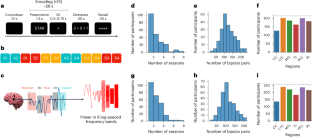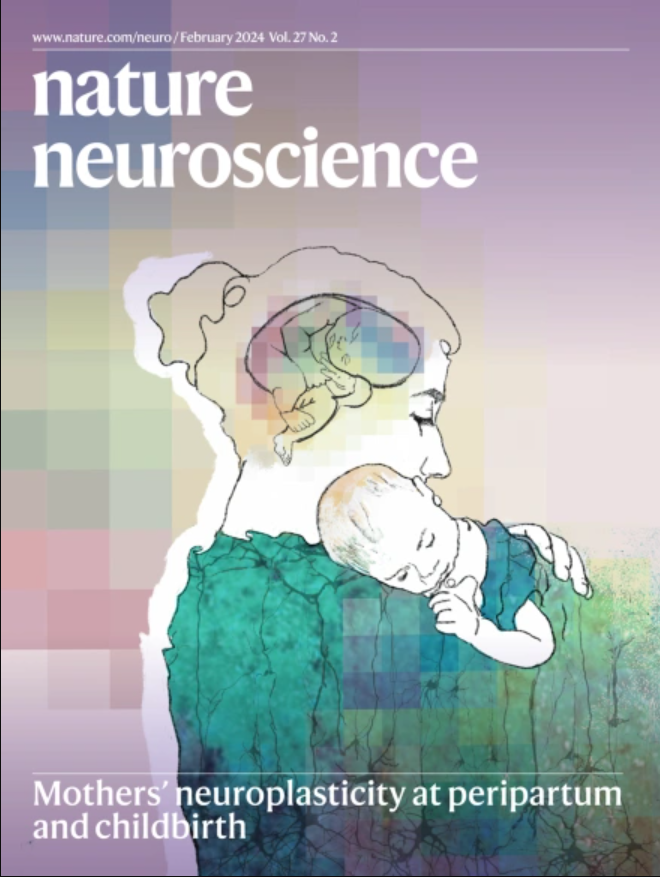Study-phase reinstatement predicts subsequent recall
IF 21.2
1区 医学
Q1 NEUROSCIENCES
引用次数: 0
Abstract
Can the brain improve the retrievability of an experience after it has occurred? Systems consolidation theory proposes that item-specific cortical reactivation during post-encoding rest periods facilitates the formation of stable memory representations, a prediction supported by neural evidence in humans and animals. Such reactivation may also occur on shorter timescales, offering a potential account of classic list memory phenomena but lacking in support from neural data. Leveraging the high temporal specificity of intracranial electroencephalography (EEG), we investigate spontaneous reactivation of previously experienced items during brief intervals between individual encoding events. Across two large-scale free-recall experiments, we show that reactivation during these periods, measured by spectral intracranial EEG similarity, predicts subsequent recall. In a third experiment, we show that the same methodology can identify post-encoding reactivation that correlates with subsequent memory, consistent with previous results. Thus, spontaneous study-phase reinstatement reliably predicts memory behavior, linking psychological accounts to neural mechanisms and providing evidence for rapid consolidation processes during encoding. How can the brain improve memory for an experience after it has occurred? Halpern et al. use intracranial EEG to show that, even while processing current experiences, people reactivate old ones and re-encode them, turning thoughts into memories.


研究阶段的恢复预示着随后的回忆
在经历发生后,大脑能提高它的可检索性吗?系统巩固理论提出,在编码后的休息期间,特定项目的皮层再激活有助于形成稳定的记忆表征,这一预测得到了人类和动物神经证据的支持。这种重新激活也可能发生在较短的时间尺度上,这为经典列表记忆现象提供了一种潜在的解释,但缺乏神经数据的支持。利用颅内脑电图(EEG)的高时间特异性,我们研究了在个体编码事件之间的短暂间隔内,先前经历过的项目的自发再激活。在两个大规模的自由回忆实验中,我们发现在这些时期的再激活,通过颅内脑电图频谱相似性测量,预测了随后的回忆。在第三个实验中,我们证明了同样的方法可以识别与后续记忆相关的编码后再激活,与之前的结果一致。因此,自发的学习阶段恢复可靠地预测了记忆行为,将心理解释与神经机制联系起来,并为编码过程中的快速巩固过程提供了证据。
本文章由计算机程序翻译,如有差异,请以英文原文为准。
求助全文
约1分钟内获得全文
求助全文
来源期刊

Nature neuroscience
医学-神经科学
CiteScore
38.60
自引率
1.20%
发文量
212
审稿时长
1 months
期刊介绍:
Nature Neuroscience, a multidisciplinary journal, publishes papers of the utmost quality and significance across all realms of neuroscience. The editors welcome contributions spanning molecular, cellular, systems, and cognitive neuroscience, along with psychophysics, computational modeling, and nervous system disorders. While no area is off-limits, studies offering fundamental insights into nervous system function receive priority.
The journal offers high visibility to both readers and authors, fostering interdisciplinary communication and accessibility to a broad audience. It maintains high standards of copy editing and production, rigorous peer review, rapid publication, and operates independently from academic societies and other vested interests.
In addition to primary research, Nature Neuroscience features news and views, reviews, editorials, commentaries, perspectives, book reviews, and correspondence, aiming to serve as the voice of the global neuroscience community.
 求助内容:
求助内容: 应助结果提醒方式:
应助结果提醒方式:


